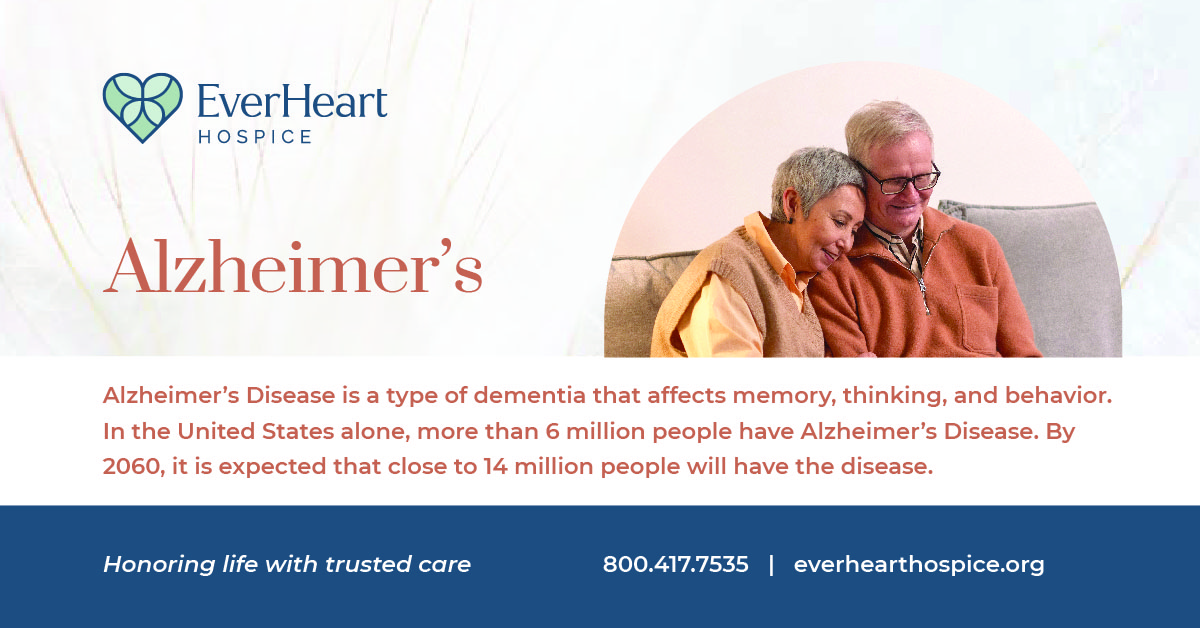The Latest
Alzheimer’s Disease

What is Alzheimer’s Disease?
Alzheimer’s Disease is a type of dementia that affects memory, thinking, and behavior. In the United States alone, more than 6 million people have Alzheimer’s Disease. By 2060, it is expected that close to 14 million people will have the disease.
Stages of the Disease
The progression of Alzheimer’s disease usually occurs slowly in three stages. People may experience these stages and symptoms differently, and in some cases, stages may overlap.
Early-Stage (Mild)- During this stage, many people still function independently. The most common symptom you may notice is forgetfulness or a slight lapse in memory.
Middle-Stage (Moderate)- This is usually the longest stage, sometimes lasting for years. At this stage, the person will need more assistance and may become more confused, act out, and have increased difficulty with daily tasks.
Late-Stage (Severe)- This is the final stage of Alzheimer’s. Symptoms will become more severe and may include greater difficulty in communicating, controlling movements, and significant personality changes. At this stage, some may find support services such as hospice care beneficial to the individual. Hospice will focus on pain and symptom management to keep the person comfortable and help them enjoy more time with their loved ones.
Signs & Symptoms
Early detection of Alzheimer’s is an important factor in accessing appropriate care for the disease. Here are 10 common signs and symptoms to watch out for:
- Memory loss that affects daily life
- Challenges in planning or problem solving
- Difficulty completing familiar tasks
- Confusion with places, dates, & time
- Trouble with vision related to images, distances, or color
- Challenges with words during speaking or writing
- Misplacing things and being unable to retrace steps
- Decreased or poor judgment
- Withdrawal from social activities
- Changes in mood and personality
There is currently no cure for Alzheimer’s disease. However, according to the Alzheimer’s Association, a new treatment has been approved by the FDA. If you are concerned about the onset of Alzheimer’s, it is important to have a conversation with your physician. Early detection is key for delaying decline for those living with Alzheimers.

